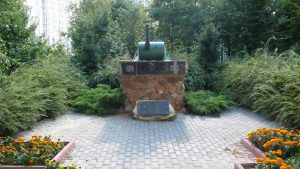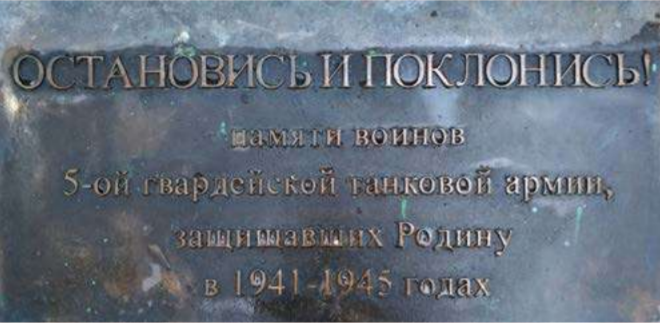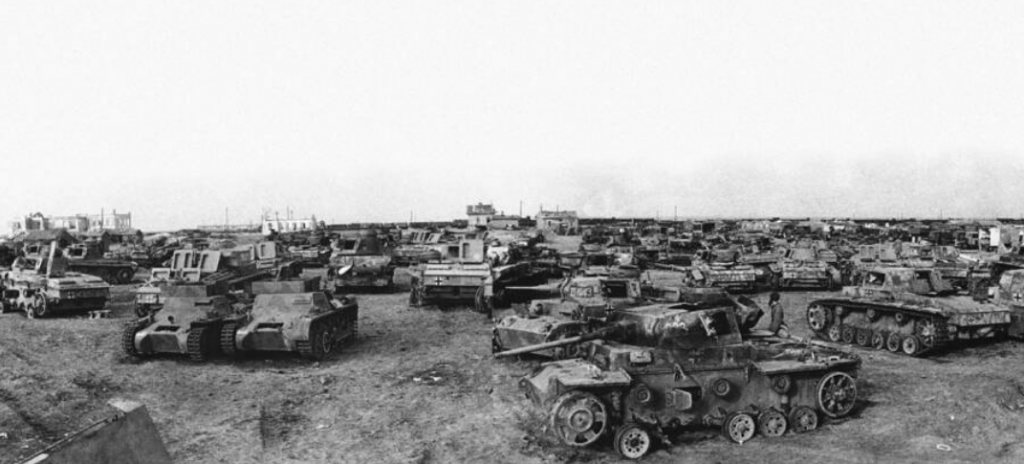Monument to soldiers of the 5th Guards Tank Army

The monument was installed in honor of the soldiers of the 5th Guards Tank Army who participated in the largest tank battle of the Great Patriotic War near the village of Prokhorovka in 1943 in which up to 1,200 tanks and self-propelled guns participated on both sides. Soviet tank units sought to conduct close combat (“armor to armor”), since the range of 76 mm T-34 guns was no more than 800 m, and the rest of the tanks had even less, while 88 mm Tiger and Ferdinand guns hit our armored vehicles from a distance of 2000 m. During the approach our tankers had heavy losses. Both sides had huge losses near Prokhorovka. In this battle the Soviet troops lost 500 tanks out of 800 (60%), while the German army lost 300 tanks out of 400 (75%). However, the battle of Prokhorovka was of great strategic importance, since after it there was a turning point in the development of the defensive battle on the southern face of the Kursk salient. The main enemy forces went on the defensive. On July 13-15 German troops continued attacks only against units of the 5th Guards Tank and 69th armies south of Prokhorovka. The maximum advance of German troops on the southern face reached 35 km. On July 16 they began to withdraw to their starting positions. In turn, the victory of the USSR in the Battle of Kursk became a turning point on the Eastern Front, after which Germany lost the strategic initiative and until the bitter end of the war was forced only to respond to the actions of the Red Army. This would have been impossible without the heroism of the soldiers of the 5th Guards Tank Army who sacrificed their lives for the Victory over Nazism, taking part in numerous tank battles, the bloodiest of which was the tank battle near the village of Prokhorovka.
The monument consists of a reduced model of a tank made of metal and mounted on a stone base. At the bottom there is a commemorative plaque with the inscription: “Stop and bow! In memory of the soldiers of the 5th Guards Tank Army who defended their homeland in 1941-1945.”
Address: Moscow, Barbolina str., 1

